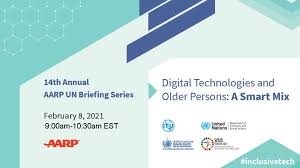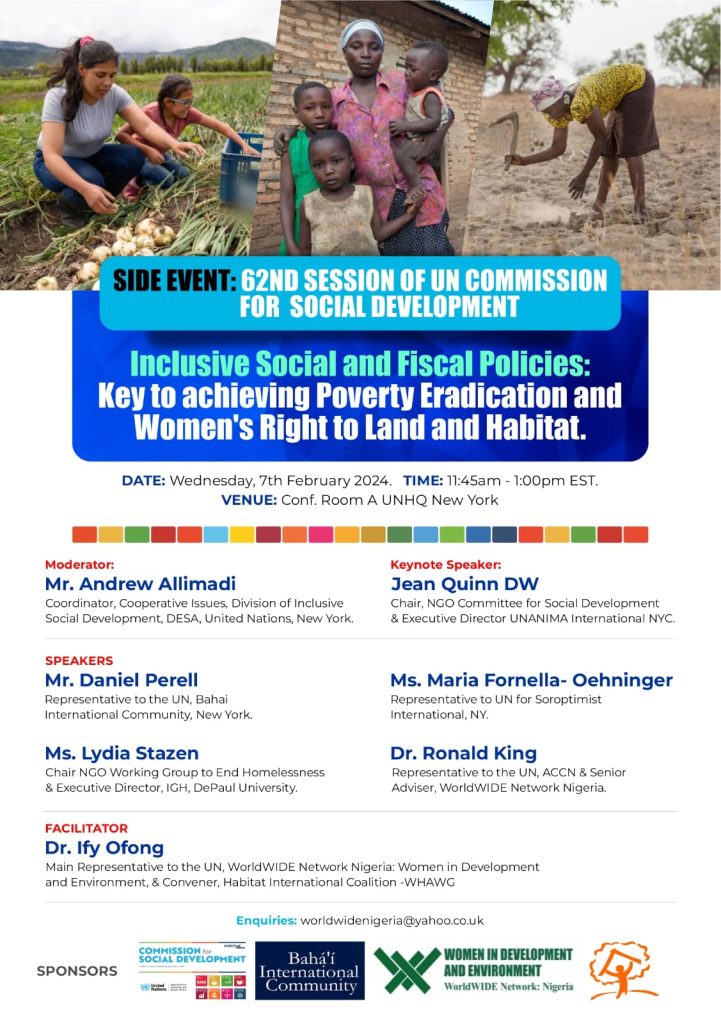Digital Technologies and Older Persons: A Smart Mix
– CSocD59 Side Event(February 8-17, 2021).

(In Virtual Attendance)

According to the organisers, “the 14th annual AARP-United Nations Briefing Series, organized by AARP and DESA in collaboration with ITU and the United Nations Independent Expert on the human rights of older persons, aims to examine how to ensure the inclusion of older people’s rights, needs, interests and perspectives in efforts of the international community to optimize the use of digital technologies and mitigate its risks.
In doing so, the event will engage new and current partners in a discussion to highlight the challenges faced by and opportunities for older people in digital inclusion; digital capacity building and ensuring that digital products, policies and practices comply with human rights standards and protections of older people.
A virtual side event during the 59th session of the Commission for Social Development (CSocD59, February 8-17, 2021)”
The speakers at the event were in agreement with the new virtual technology and the need for its inclusive use but also with full realisation of the down turns, ethics, economic and social impacts digital technology could have on older and diverse vulnerable persons who especially may be cut off from normal social interaction. Furthermore, the gap between urban and rural areas and the amenities available for the deployment sustenance of full inclusive digital technology should be properly addressed. Issues of stigmatisation was highlighted hence adequate human rights regulations should be addressed and measures put in place to enhance both digital literacy and ethical use of digital technology that is inclusive and devoid of stigma. The importance of digital technology became obvious with the crisis of covid-19 pandemic lockdown which created both opportunities by connecting the world in ways never seen before and of course its challenges for older and vulnerable persons who could not afford the skills required and the technology itself.
The panel of discussants noted that digital technology is the new normal and will enhance equality with some training and time for everyone to catch up. The panel pointed that the digital divide is narrowing as the older aged persons are steadily catching up. But to have an inclusive digital status, there is need to have a coordinated approach that makes private and public (governmental) partnership possible and provides solutions to observed problems peculiar to digital diversity and acuity and makes digital literacy and inclusiveness possible.
On its benefits, digital technology provides seamless opportunities for education, commerce and innovation. However, apart from the human rights argument also came the economic argument of cost of development of digital technologies, the deployment and the cost of use which may create digital inequality. But to truly leave no one behind the panel observed that there must be other ways to look at the areas of challenges. For instance, those older persons who may not be able to transact online banking or use the credit card will have to go to the bank in person and will pay more for their transactions in which case inclusiveness is not being balanced. Best approach was advocated including education, constant evaluation and time for everyone to get used to digital technology.



